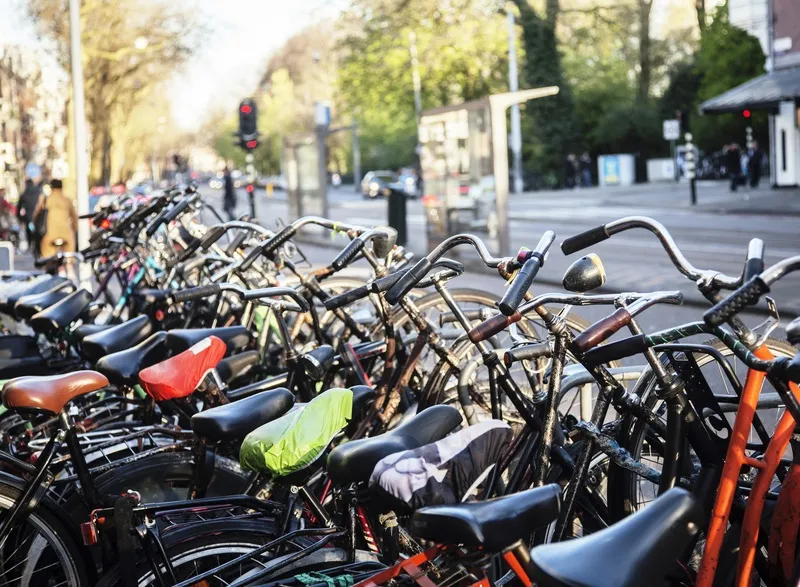Paris has launched its 2015-2020 cycling strategy, which aims to double the length of the city's cycle network and triple the number of Parisians cycling every day.
The strategy was developed with the input of almost 7,000 stakeholders in a consultation period from December 2014 to January 2015 aims to help deal with Paris's high air pollution and concentration of particulates, which caused heavy smog earlier this year and in spring 2015.
A total of US$166 million has been allocated to realise the str
May 5, 2015
Read time: 2 mins
Paris has launched its 2015-2020 cycling strategy, which aims to double the length of the city's cycle network and triple the number of Parisians cycling every day.
The strategy was developed with the input of almost 7,000 stakeholders in a consultation period from December 2014 to January 2015 aims to help deal with Paris's high air pollution and concentration of particulates, which caused heavy smog earlier this year and in spring 2015.
A total of US$166 million has been allocated to realise the strategy's aims. More than a third, US$69 million, will be spent on improving and extending the cycle network, effectively doubling it from its current length of 700 kilometres to 1,400 kilometres by 2020.
The city is dedicating US$33 million to making Paris's streets safer, by transforming secondary roads into 30km/h zones and implementing two-way cycle lanes so that cyclists can navigate the city more easily, while US$44 million has been set aside to better integrate cycling with public transport as well as with the city's public squares and major roads.
By 2020, Paris intends that15 per cent of journeys should be completed by bicycle, up from five per cent today. To accomplish this, US$7.7 million will be spent on creating a further 10,000 bicycle parking places and a subsidy scheme worth US$11 million will help residents with specific cycling needs to buy cargo and electric bicycles.
The strategy was developed with the input of almost 7,000 stakeholders in a consultation period from December 2014 to January 2015 aims to help deal with Paris's high air pollution and concentration of particulates, which caused heavy smog earlier this year and in spring 2015.
A total of US$166 million has been allocated to realise the strategy's aims. More than a third, US$69 million, will be spent on improving and extending the cycle network, effectively doubling it from its current length of 700 kilometres to 1,400 kilometres by 2020.
The city is dedicating US$33 million to making Paris's streets safer, by transforming secondary roads into 30km/h zones and implementing two-way cycle lanes so that cyclists can navigate the city more easily, while US$44 million has been set aside to better integrate cycling with public transport as well as with the city's public squares and major roads.
By 2020, Paris intends that15 per cent of journeys should be completed by bicycle, up from five per cent today. To accomplish this, US$7.7 million will be spent on creating a further 10,000 bicycle parking places and a subsidy scheme worth US$11 million will help residents with specific cycling needs to buy cargo and electric bicycles.









